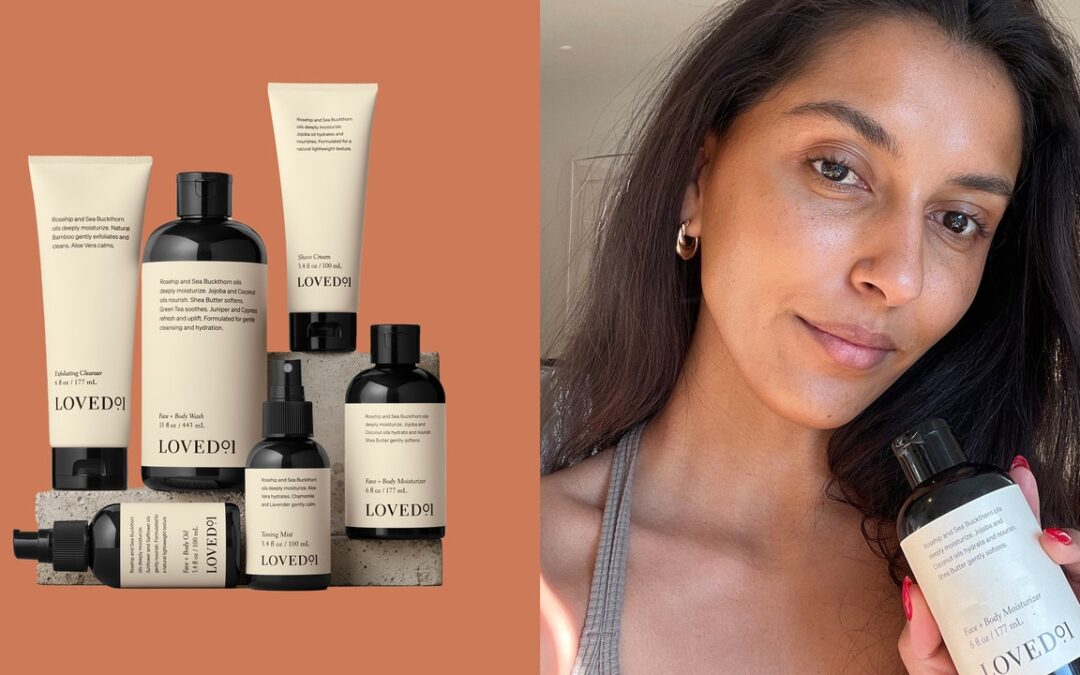At launch, Legend says the brand is focused on moisture, because he’s learned there’s evidence dark skin tones lose moisture more quickly than lighter ones. (More on that in a minute.) “Whether it’s our cleanser, our shaving cream, or our moisturizer — all of them have rosehip oil and sea buckthorn oil that are meant to deeply hydrate the skin and prevent that quick loss of moisture,” he says.
And since people with deeper skin tones have more active melanocytes than people with lighter skin and therefore are prone to darker discoloration, in the future, Loved01 will launch products focused on hyperpigmentation as well as an SPF moisturizer.
The discussion around marketing a brand to cater to melanin-rich skin (as brands like Kinlò, Proudly, and Ciara’s On A Mission all do) has been abundant the past few years, due in large part to the fact that there is limited research available on the nuances of melanin-rich skin — which Legend brought up himself.
“We also learned that there hasn’t been enough research around darker skin tones because the [beauty] industry and the dermatology industry just hasn’t centered us as a subject for research,” he says. “One of the things we want to encourage in the industry and talking to our competitors and other people who are creating skin care in this realm is that melanin-rich skin needs to be focused on more as a subject of research and product development. We want to be a force for equity when it comes to that.”
When asked if he would invest in studies of this nature, he shared that he wants to “start a movement where our skin is being studied, being researched more, and the products are being formulated with [dark] skin in mind.”
I left the interview with an appreciation for Legend’s focus on democratizing skin care for underserved skin tones, but was still needed clarity on how they specifically cater to melanin-rich skin, more than other formulas already out there. Are the ingredients in Loved01’s formulations proven to be better for deep skin tones?
I consulted Los Angeles-based cosmetic chemist Javon Ford and Orange County-based cosmetic chemist and licensed esthetician Esther Olu. “There are no ingredients in [these products] that specifically have been studied to perform better for melanin-rich skin than non[-melanin-rich skin],” says Olu, although she acknowledges research is limited. “If you were to actually compare a product with this marketing versus one without and look at the ingredient lists, you would see similar, if not the same ingredients.” Ford agreed.

